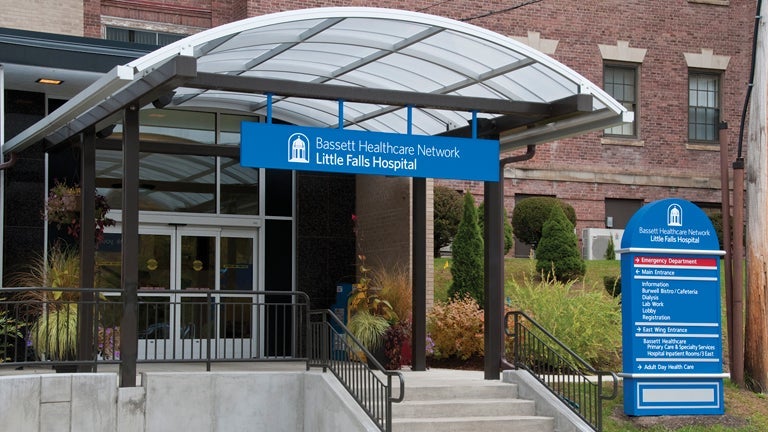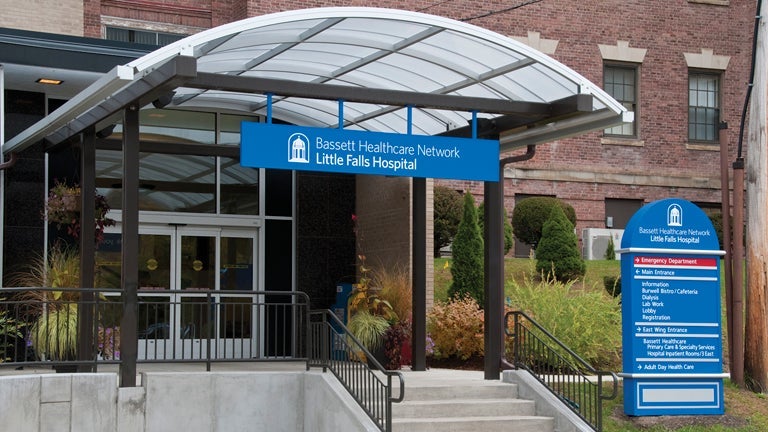Hysterectomy
Hysterectomy Surgery
Uterus removal surgery is called a hysterectomy. Bassett Healthcare Network’s surgeons choose uterus removal to treat a variety of women’s health conditions, including:
- Uterine fibroids
- Abnormally heavy periods
- Endometriosis
- Chronic pelvic pain
- Uterine prolapse
- Cancers of the uterus, cervix, or ovaries
Hysterectomy Surgery Options
A hysterectomy is considered a major gynecologic surgery. Even though it is often a minimally invasive procedure, a hysterectomy is always performed in a hospital operating room under general anesthesia.
Depending on your diagnosis, you might undergo one of several kinds of hysterectomy:
- Partial hysterectomy, when the uterus is removed but the cervix stays intact
- Total hysterectomy, when both the uterus and cervix are removed
Hysterectomy procedures can be performed either abdominally or vaginally:
- Abdominal hysterectomy, often a minimally invasive procedure called a laparoscopic hysterectomy or robotic hysterectomy, is when a small camera is inserted through tiny incisions in your abdomen, enabling surgeons to see and remove tissue through the incisions. Robotic hysterectomy surgery is similar to laparoscopic surgery, and provides your surgeon with a greater range of motion and precision – which may lead to less bleeding and post-operative pain
- Vaginal hysterectomy, which is when surgeons remove the uterus through the vagina without any incisions in your abdomen
Gynecologic surgeons at Bassett Healthcare Network prefer vaginal, laparoscopic, and robotic hysterectomies because of the shorter hospital stays and reduced recovery time for the patient. Vaginal and laparoscopic hysterectomies are also recommended by the American College of Obstetrics and Gynecology.
Hysterectomy Recovery Time
Depending on the type of surgery, you may be released from the hospital the following day, or be asked to stay for a few days. To promote a healthy recovery, your care team will get you walking soon after you wake up in order to lower the risk of blood clots.
A full recovery will take 3 to 6 weeks. If your ovaries were removed, you will enter menopause immediately. Your primary care practitioner at Bassett Healthcare Network will talk with you about whether you’re a good candidate for hormone replacement therapy.
Contact Your Primary Care Practitioner
A hysterectomy is an effective treatment for uterine cancer and a variety of other gynecologic conditions. Talk with your primary care practitioner to ask for a referral, or call 1-800-BASSETT to get started.
Bassett Healthcare Network provides hysterectomy surgeries in Central New York, including its facilities in Cooperstown, Oneonta, Herkimer, Little Falls, and Cobleskill.




